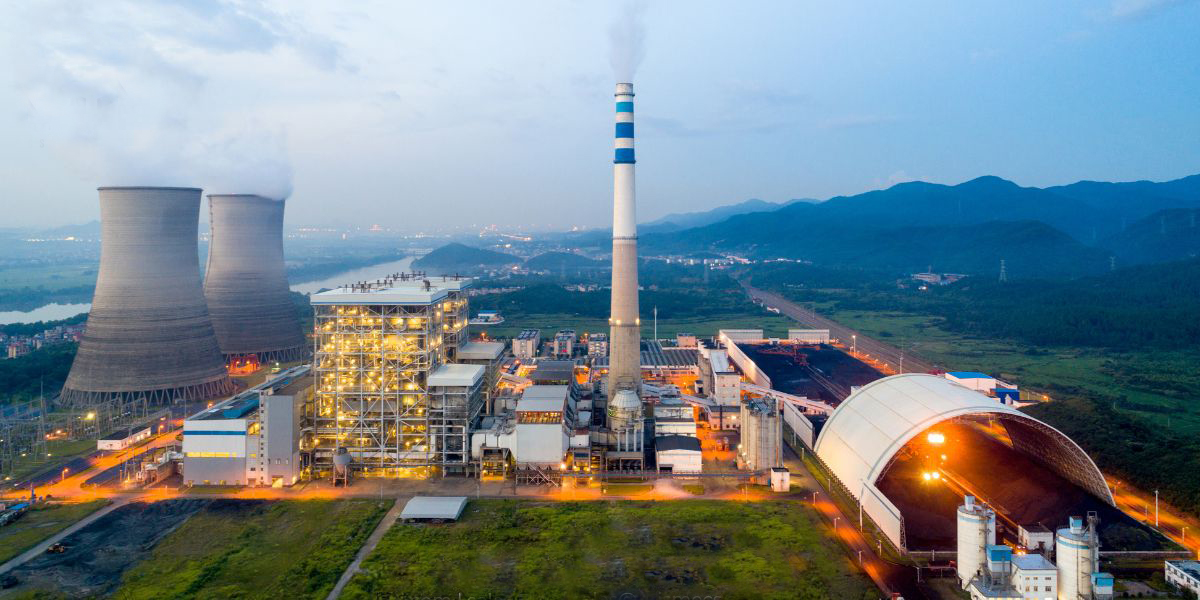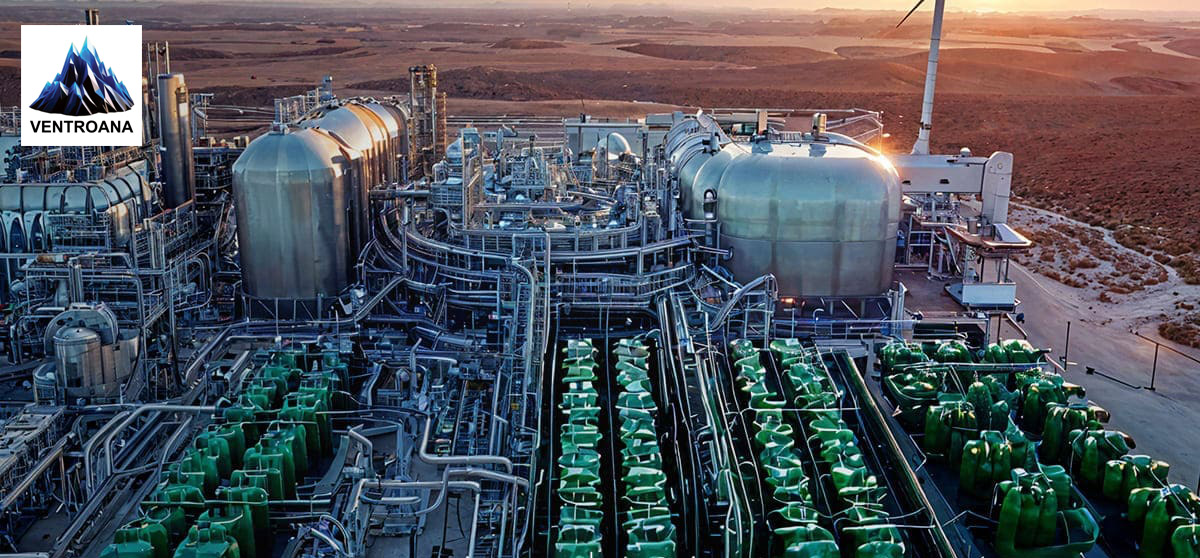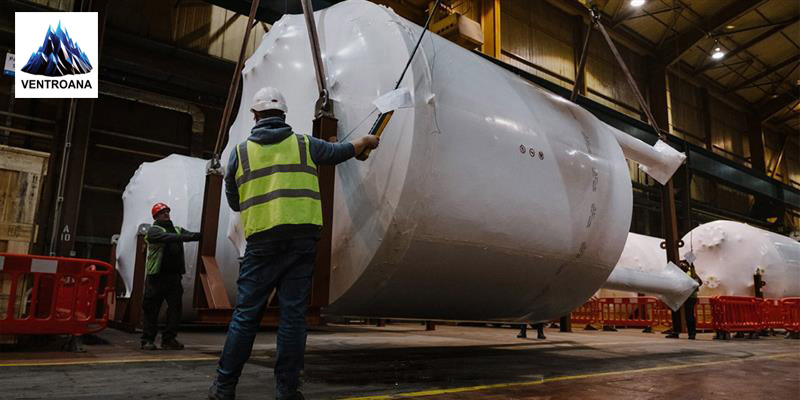Power Generation
May 29, 2024

In the dynamic realm of power, where demands are ever-increasing and environmental responsibility is paramount, efficiency reigns supreme. Power generation facilities face the challenge of meeting escalating energy needs while minimizing costs and environmental impact.
In this blog, we delve deep into the realm of efficiency. We explore key strategies that optimize operations. These strategies also drive financial success and commercial success.
Fossil fuels like coal, oil, and natural gas dominate the energy mix for electricity generation. These three constitute almost 65% of the global energy mix.
Efficiency lies at the heart of every successful power generation facility. It forms the cornerstone for building financial success, environmental responsibility, and market strength.
In today's fiercely competitive market, margins are razor-thin. Environmental regulations are stringent. Maximizing efficiency isn't just a choice; it's a strategic necessity.
Efficiency in power generation encompasses a broad spectrum of factors, ranging from resource use to work methods. More with less maximizing output while minimizing input, whether it be fuel, water, or manpower. By optimizing efficiency, facilities can enhance their performance metrics, such as heat rate, capacity factor, and availability. This leads to improved financial success and work reliability.
The Power generation market size has witnessed strong growth in recent years, surging from $2054.27 Billion in 2024, with a compound annual growth rate (CAGR) of 7.3%.
In the ever-evolving realm of energy production, the quest to maximize efficiency transcends individual sources. It shapes strategies that span from renewable resources to conventional fuels.
In the realm of renewable energy, solar power holds immense potential for generating electricity. By harnessing the sun's abundant energy through solar photovoltaic (PV) panels, power generation facilities can produce electricity with minimal environmental impact.
Key strategies for maximizing efficiency in solar power generation include optimizing panel orientation. Leveraging advanced tracking systems is also crucial. Integrating energy storage solutions enhances grid stability.
Hydroelectric power remains a stalwart in the realm of renewable energy, leveraging the kinetic energy of flowing water to produce electricity. To maximize efficiency in hydroelectric power generation, facilities can explore innovative approaches.
Pumped storage, storing excess energy during periods of low demand, is one such approach. It releases this stored energy during peak demand periods. Additionally, modernizing infrastructure and implementing advanced turbine designs can further enhance efficiency and output.
Nuclear power plants represent a vital source of baseload electricity, providing reliable and emissions-free energy generation. Maximizing efficiency in nuclear fission entails optimizing reactor performance, enhancing fuel use, and implementing stringent safety protocols to minimize downtime. Additionally, advancements in reactor technology, such as next-generation nuclear reactors, offer promising opportunities for further efficiency gains and cost reduction.
As a versatile and abundant fuel source, natural gas plays a significant role in electricity generation. Particularly, it is prominent in combined-cycle power plants. Strategies for maximizing efficiency in natural gas-fired power generation include deploying high-efficiency gas turbines.
Implementing combined heat and power systems to utilize waste heat is another effective approach. Integrating renewable natural gas sources contributes to a greener energy mix.
The growing demand for dependable power sources is significant. Combined with the emergence of energy-efficient technologies, it projects driving the uptake of combined heat and power plants.
Furthermore, the increasing preference for solar captive power generation is noteworthy. Regulatory incentives abound in this sector. They anticipate spurring solar energy production throughout the forecast period (2023-2029).
The power Generation Market expects a 5.2% CAGR growth during the forecast period, reaching US$ 42.55 Bn by 2029.
Maximizing efficiency in power generation facilities necessitates the integration of advanced technologies and optimizing processes. By embracing innovations and streamlining workflows, facilities can achieve higher output while minimizing resource consumption and environmental impact.
Embracing cutting-edge technologies such as predictive analytics, Internet of Things (IoT) sensors, and artificial intelligence (AI) enables real-time monitoring. It also facilitates predictive maintenance and process optimization. These technologies empower facilities to identify shortcomings, predict equipment failures, and optimize operations, ultimately driving down costs and enhancing performance.
Expanding energy sources reduces reliance on a single fuel and enhances flexibility. Facilities can optimize fuel usage based on cost, availability, and environmental impact. They can leverage a mix of renewable and traditional fuels. This approach maximizes efficiency and minimizes emissions.
Implementing combined heat and power systems allows facilities to simultaneously generate electricity and useful heat from a single fuel source, significantly improving overall efficiency. Waste heat recovery systems capture and utilize excess heat, further enhancing energy efficiency and reducing waste.
Upgrading to high-efficiency turbines and implementing regular maintenance protocols can yield substantial efficiency gains. By optimizing turbine performance and minimizing downtime, facilities can increase output and reduce fuel consumption, driving financial success.
Integrating energy storage systems such as batteries or pumped hydro storage is essential. It enables facilities to balance supply and demand fluctuations effectively. Additionally, it optimizes peak load management and improves grid stability. Energy storage solutions enhance overall system efficiency and unlock new revenue streams through ancillary services.
Water is integral to many power generation processes. Optimizing its usage through recycling and conservation measures is crucial. Advanced cooling technologies can significantly reduce water consumption and environmental impact. By minimizing water usage, facilities can lower operating costs and enhance environmental responsibility.
Implementing lean management principles and optimizing workflows can eliminate bottlenecks, reduce waste, and improve overall work efficiency. Automation further streamlines processes, enabling faster decision-making and resource allocation.
Establishing robust monitoring systems and performance metrics is essential. Power generation facilities can track efficiency indicators in real-time. They can then identify areas for improvement and implement targeted interventions. Continuous monitoring and performance evaluation enable facilities to drive ongoing improvements and maximize efficiency over time.
In the fiercely competitive landscape of power generation, efficiency is key to unlocking financial stability, environmental responsibility, and commercial success. By embracing innovative technologies, facilities can enhance their edge. Optimizing resource use and streamlining operations are crucial steps. They can drive down costs and position themselves for long-term success in the dynamic energy market.
Partnering with Ventro Analytics isn't just about optimizing efficiency; it's about unlocking your pathway to commercial success in power generation. Our tailored innovative solutions and industry expertise empower your facility to operate at peak performance. They maximize output and minimize costs.
With Ventro Analytics by your side, you'll not only achieve efficiency you'll also pave the way for financial success, environmental responsibility, and commercial success in the competitive energy market. We also provide tailored solutions to meet your unique needs. To avail of our services, you can call us at +1 (888) 774-7632 or send us an email at sales@ventroana.com.
Tags: Generating Electrical Energy Sources Solar Power Produce Electricity Pumped Storage Utility Scale Hydroelectric Power Plants

Successful Implementation of Green Hydrogen in Power Plants
Discover how green hydrogen revolutionizes power plants with sustainable energy solutions, reducing ...

Driving Innovation and Resilience: Insights from the 10th Annual Energy Supply C...
Gain insights on driving innovation and resilience at the 10th Energy Supply Chain & Procurement Sum...

Understanding EPC Engineering: Key Concepts Explained
Discover the essentials of EPC Engineering, covering contracts, project phases, and roles of EPC con...